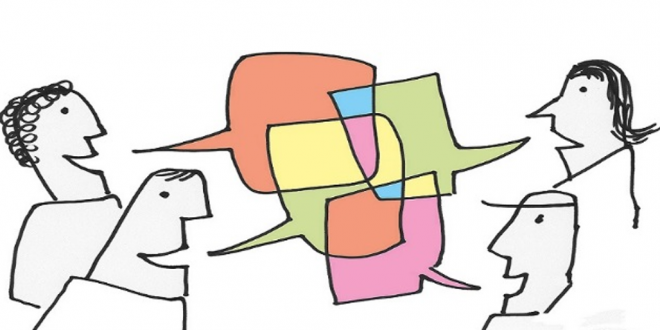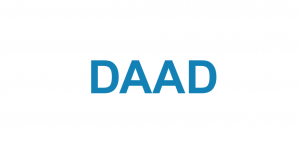Thursday, Dec. 10th, 2015
9:30 a.m. Arrival and breakfast
10:00 a.m. Lesson Planning
Presenters:
Ulrike Kugler, Director of Language Program & Educational Liaison, Goethe-Institut Toronto
Imogen Jenkins, Language Program Assistant, Goethe-Institut Toronto
11:45 a.m. Einsatz von Tablets & Smartphones im Fremdsprachenunterricht
Presenter: Marje Zschiesche-Stock, Goethe-Institut Toronto
1:20 p.m. Lunch (catered)
2:35 p.m. Developing Reading Skills
Presenter: Dr. Sun-Young Kim, German Language Coordinator, McGill University
4:15 p.m. Classroom Management
Presenter: Dr. Jason Lieblang, German Language Coordinator, University of British Columbia
6:00 p.m. Dinner – Bar Mercurio
Friday, December 11th, 2015
9:00 a.m. Arrival and breakfast
9:15 a.m. Teaching Grammar
Presenter: Barbara Schmenk, Professor of German, University of Waterloo
11:00 a.m. Teaching Cultural Studies Online
Presenter: James Skidmore, Associate Professor of German, Director of Liberal Studies, University of Waterloo
12:30 p.m. Concluding Remarks & Seminar Evaluation
1:15 p.m. Lunch – L’Espresso Bar Mercurio
About our presenters:
Imogen Jenkins studierte Deutsch als Fremdsprache mit Schwerpunkt auf Pragmatik in Lehrwerken an der Ludwig-Maximilians-Universität München und schloss ihr Bachelorstudium 2015 ab. Seit September 2015 arbeitet sie als Assistentin in der Sprachabteilung am Goethe-Institut Toronto. Sie unterstützt diverse Projekte der Bildungskooperation in Westkanada v.a. im Bereich der Lehrerfortbildung und der Werbung für Deutsch.
Sun-Young Kim earned her Honours B.A. and M.A. in Germanic Languages and Literatures at the University of Toronto and her Ph.D. in German Studies at the University of Michigan. She taught German language, literature and culture courses at universities in Toronto and Michigan. She is the current German Language Program Director at McGill University’s Department of Languages, Literatures, and Cultures and teaches all levels of German language courses. Her teaching and research interests include literature of the 19th-21st centuries, with a special emphasis on Viennese modernism, Weimar modernism, and the use of religious symbols and language in literature.
Ulrike Kugler studierte Französisch und Italienisch auf Lehramt an der Universität Wien, der Université de Lausanne und der Université de Montréal und schloss ihr Studium 2007 mit dem Magister ab. Von 2007 bis 2013 war sie am Goethe-Institut Montréal als Koordinatorin der Bildungskooperation und als Deutschlehrerin am Collège international des Marcellines tätig. Von 2012 bis 2013 arbeitete sie außerdem als Dozentin für Deutsch als Fremdsprache an der Université de Montréal. Seit 2013 ist sie als Leiterin der Sprachabteilung am Goethe-Institut Toronto u.a. für die Fortbildung von Deutschlehrern an Schulen und Universitäten in den Provinzen Ontario, Saskatchewan, Manitoba, Alberta und British Columbia zuständig.
Jason Lieblang earned his Ph.D. in Germanic Languages and Literatures from the University of Toronto for a dissertation that posits the coming into being of a “masculinity-crisis” master signifier in Europe from the mid-19th century, which, paradoxically, functions to reinforce “masculinity’s” social dominance. In the Department of Central, Eastern and North European Studies at the University of British Columbia he teaches German language, literature and film, and is also a co-coordinator in the German Language Program. In 2013 and 2014 he facilitated study abroad semesters in Berlin, and expects he will do so again. He focusses on beginner and intermediate German language classes, and he is most at home culturally in the 19th and 20th centuries. More specifically, his interests include language learner motivation, technology in the language classroom, the popular culture of the Weimar Republic, the city of Berlin, the study of masculinities, and comics.
Barbara Schmenk is a Professor of German/Applied Linguistics at the University of Waterloo, Canada. Before joining the U of W in 2004, she taught at high schools in Germany, at the Ruhr- Universität Bochum, Clemson University, SC, and Trinity College, Dublin, Ireland. At Waterloo, she is responsible for training graduate instructors of German and French, and she teaches undergrads and grads in German and Applied Linguistics. Her research interests include gender studies, drama in language education, learner autonomy, teaching methodology and intercultural/transcultural learning.
James Skidmore has been with the Department of Germanic and Slavic Studies at the University of Waterloo since 2000. One of his Schwerpunkte has been teaching German cultural history, both in the classroom and online. In 2012 he was awarded the DAAD German Online Award for his courses in German Thought and Culture. Together with Christina Kraenzle (York University), he is the founding editor of kultur360.com, a combined research and teaching platform on contemporary German society and culture, a project funded in part by the DAAD and eCampus Ontario.
Marje Zschiesche-Stock earned her Master of Teaching (Staatsexamen) in German and English Language and Literature at the University of Göttingen. She pursues a PhD degree in German Studies at the University of Freiburg, and is associated to the Centre for Medieval Studies at the University of Toronto. Since 2014, she has been working for the Goethe Institut Toronto, focusing on teaching intermediate and advanced German language and culture as well as training SL teachers in the use of new media in the language classroom.
Workshop Organizing Committee
Erol Boran
Associate Professor of German, Teaching Stream
Department of Germanic Languages and Literatures, University of Toronto
Stefana Gargova
Ph.D. Candidate, Department of Germanic Languages and Literatures, University of Toronto
Hang-Sun Kim
Language Coordinator & Assistant Professor of German, Teaching Stream
Department of Germanic Languages and Literatures, University of Toronto
Teresa Sudenis
Ph.D. Candidate, Department of Germanic Languages and Literatures, University of Toronto
Special thanks to Gayle Grisdale and Helena Juenger for their organizational support.
………………………………………………………………………………………………………………………………………….
Sponsored by the German Academic Exchange Service, the Department of Germanic Languages and Literatures, and the Goethe-Institut Toronto
 Department of Germanic Languages & Literatures University of Toronto
Department of Germanic Languages & Literatures University of Toronto


